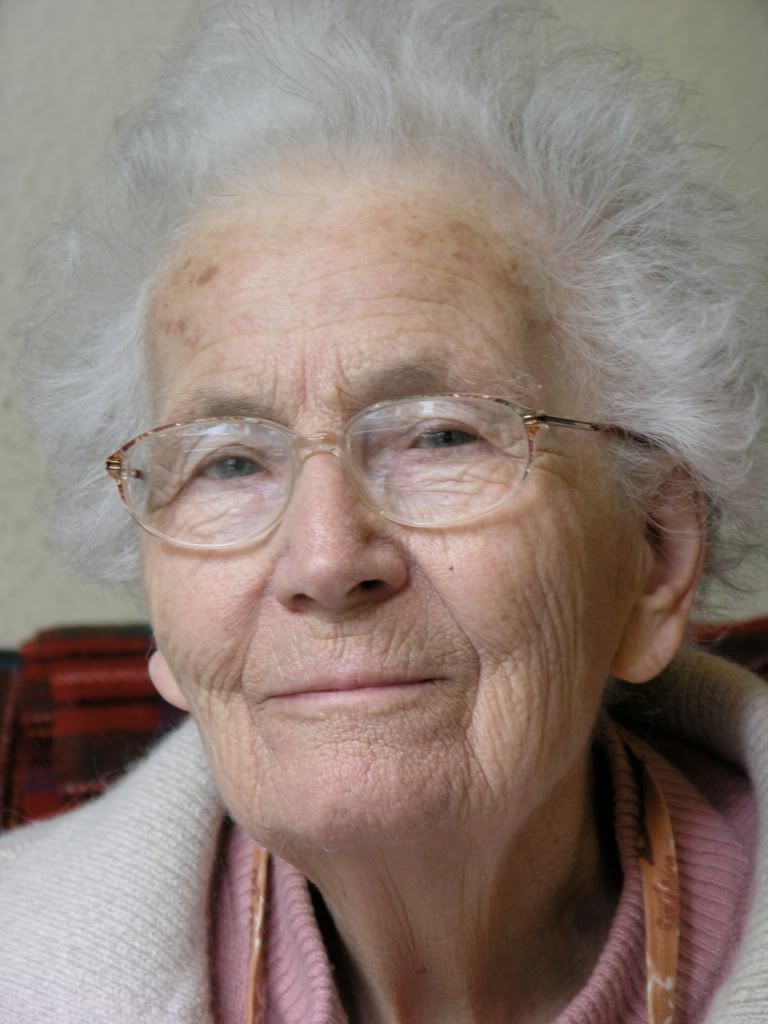This is a very full day so not much time to post. The sun is out though thin streams of white cloud come thickening up at times. The wind is tossing the branches without any particular vigour, just enough to remind them it's there and could administer a more earnest buffeting. From upstairs the sound of the radio. Lily, more statuesque now, sits on the windowsill surveying the street. Pearl is skulking and hulking, ever ready for another bite. Son Tom is in Canada doing two gigs, one in Toronto, one in Montreal. Daughter Helen plays Scrabble with me on the computer at night when the baby keeps her awake. The desk is as clear as it has been for a while. I write a few lines for mother-in-law W's ninetieth birthday. The lines come out well.

Winnie, Clarissa's mother
Affection is not a subject much covered in contemporary poetry, nor is love. We watch our backs now, see our nerves jangle and hope to say the right things to the ironic elements. I note the irony and give it its due but I'm not going to be cowed by it.

2 comments:
'Affection is not a subject much covered in contemporary poetry, nor is love.'
I know what you mean, regarding affection especially (love poems come is infinite shapes and sizes with plenty of wiggle room for irony, bitterness, disgust, etc.). I always recall Milosz's self-deprecatory remark (in his "Ars Poetica?") on work that devises '...just one more means / of praising Art with the help of irony.' Also Longley recently on Muldoon: 'For me, Finnegan's Wake is a wonderful waste of time, laying a paper trail for the academics. Sometimes I wonder if that's what Paul is up to. But I say to him, "I like writing wee poems that move people", and Paul says, "Believe it or not, I do too".'
I think affection and praise used to be what the lyric was largely about (and what Larkin was very often about, despite his reputation). Hence the following squib:
DIVERSION
Having long since bypassed the old distillery,
we overshot the bypass. These days
all tributaries are in a hurry
to forget how to praise.
Nice four liner. And yes, there is a lot of tenderness in Larkin.
After the Simon Armitage reading someone said they found the poems too soft-centred. I said I didn't. I found them funny, etc, as described on the post below.
The very last poem Armitage read was bleaker than bleak. That was the only one the person really liked. I suspect that is affectation. Affectation and a morbid fear of anything that someone else might deride as sentimentality.
It is as if it were some test of virility to negate all the feelings that make us acceptable to each other as human beings. 'Too much cheerfulness,' said Blake (who liked cheerfulness), 'is of all things the most loathsome.' But if poetry cannot deal with the full range of human feeling, including that intensely valuable set of feelings that make us bearable at all, I don't see the point of it. I am not interested in it. Nor would most people be.
Post a Comment